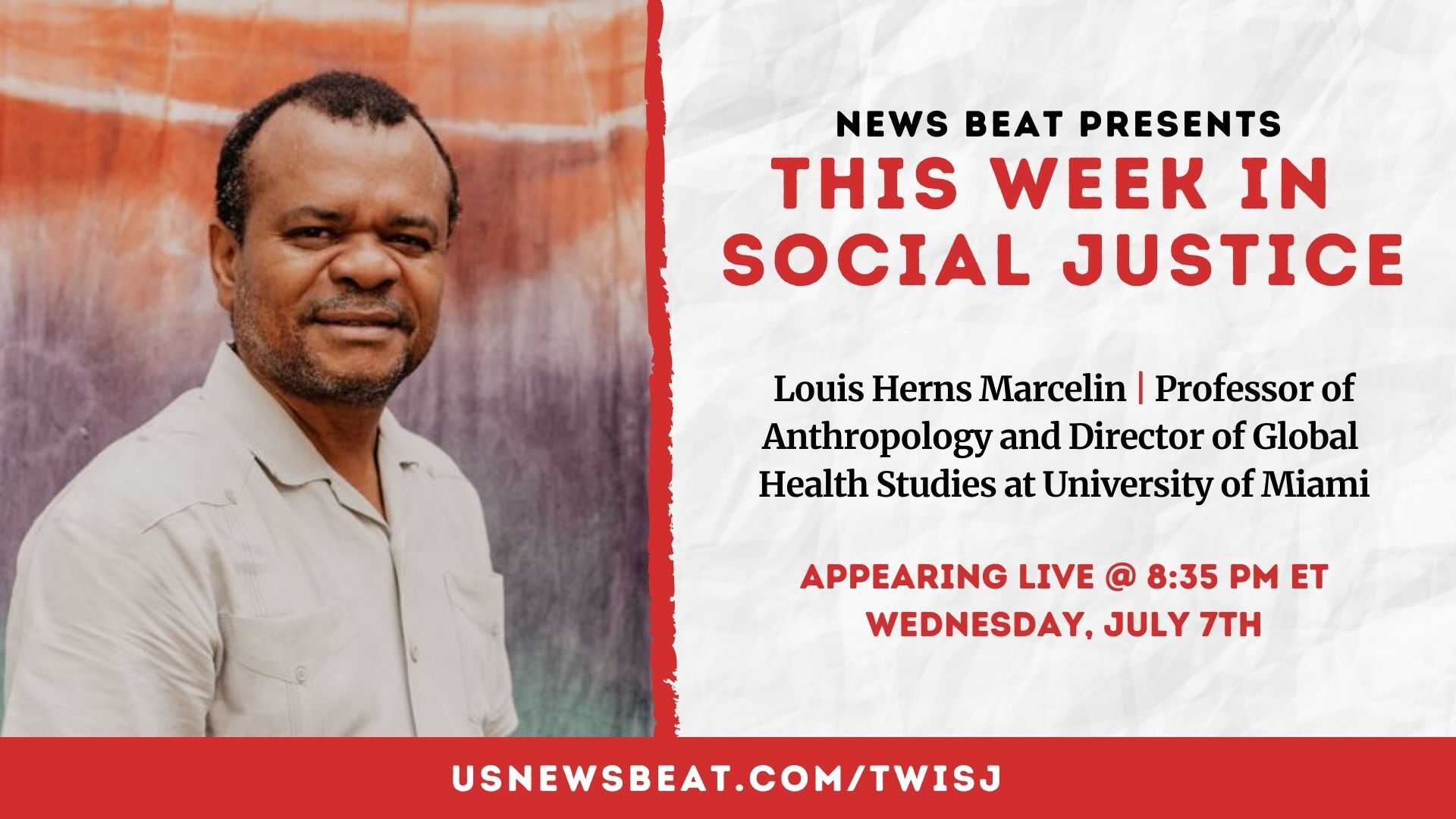America’s obsession with incarceration could double fatalities related to the novel coronavirus (COVID-19) pandemic, a new analysis released by the American Civil Liberties Union (ACLU) warns.
Official government estimates could be low-balling deaths by 100,000, according to the civil liberties group’s study, conducted by ACLU Analytics and researchers from three universities. Current federal models forecast between 100,000 to 240,000 coronavirus-related fatalities.
Even if the minimum number of projected deaths becomes a reality, deaths could almost double if more extreme measures—similar to those adopted in public—are not mirrored inside jails, the new analysis concludes.
“What our model tells us with near certainty is that ignoring jails in the public health measures taken to mitigate COVID-19 spread will result in the substantial undercounting of potential loss of life,” it states.
Infections in the United States have surpassed 860,000 and deaths are nearing 50,000—yet another stark reminder that the pandemic continues to ravage communities across the country.
Listen to our award-winning podcast by subscribing to News Beat on your favorite pod app.
As we’ve reported, marginalized populations are particularly vulnerable to the disease, and African Americans are dying at a disproportionately higher rate from the coronavirus. Experts have warned that due to myriad deficiencies inside jails and prisons—chronic understaffing, substandard healthcare services, antiquated healthcare data systems, and aging populations—the likelihood of exposure is high.
According to The New York Times, some of the largest outbreaks in the country are connected to correctional centers.
There are more than 2.2 million Americans behind bars—an increase of 500 percent since the 1970s. The massive drive to incarcerate is the result of decades-long “tough-on-crime” policies, including the racialized war on drugs. Sentence lengths have also increased over this period, endangering thousands currently behind bars who are aging and suffering from chronic conditions that make them more vulnerable to COVID-19.
News Beat is covering the intersection of mass incarceration and COVID-19. Listen to these podcast episodes:
Coronavirus Behind Bars: Crisis In New York
Coronavirus Behind Bars: Florida Jails & Bans On Visitation
When Epidemics Collide: Coronavirus, Criminal Justice & Poverty
Systemic problems inside jails also make them more susceptible to the spread of infection diseases, experts say.
“Often people don't have soap, [or] enough soap. Often they don't have cleaning supplies for their areas, for their personal areas,” Maria Morris, senior staff attorney at the American Civil Liberties Union (ACLU) National Prison Project, told News Beat podcast. “They may not have enough hygiene supplies...There's a lot of those kinds of issues that make it very hard to control the spread of an infectious disease once it gets into any kind of detention or correctional facility.”
Join our email list and never miss an episode. Scroll to the bottom to sign up!
In an interview with News Beat on March 13, Dr. Homer Venters, an epidemiologist and former chief medical officer for New York City’s jails, warned of a “perilous and looming threat” inside America’s jails and prisons if proactive steps were ignored.
An invisible barrier separating these institutions from the broader public health community is partly to blame, he said.
“Healthcare services behind bars are generally substandard and disconnected from all the basic institutions that promote quality and transparency in the rest of our nation,” Venters told us. “So the bodies that we're hearing about every day, the CDC or state department's of health, local departments of health, they're really outside the walls of these places.”
“And so most health care services behind bars are run by security services, by sheriffs and commissioners of correction,” he continued. “And they're the ones that we've left with a job of figuring out what's the right amount of quality, the scope of services and the transparency, and so as you can imagine, they're not healthcare professionals and they have not been able to establish any kind of clinical standard of care behind bars. So the status is quite poor, and it's quite removed from our eyes.”
RELATED: Read our series on mass incarceration and listen to our criminal justice podcast playlist.
The ACLU report echoes many of the concerns experts have voiced for weeks since the pandemic took hold.
“Numbers used by the Trump administration largely fail to consider several factors that will explosively increase the loss of life unless drastic reforms are adopted to reduce the nation’s jail populations,” the report says.
The ACLU says projections based on how the virus has impacted other countries will “underestimate the loss of life” because other nations’ incarceration rates fall well below those within the Unites States.
Among the other factors that could contribute to an exponential rise in deaths:
- American jails and prisons are “substantially inferior” to other western nations, increasing the likelihood of the virus spreading. The report goes as far as saying efforts to “flatten the curve” are “simply not feasible” inside these spaces.
- Jails are like revolving doors, with nearly three-quarters of a million people locked up on any given day—including about 400,000 innocent people held pretrial, most of whom can’t afford bail.
- The more than 400,000 people working inside jails and prisons across the country could expose inmates, their families, and other members of the public to the disease.
The report singled out Colorado for reducing its jail populations by 31 percent, but noted: “Most states have failed to take any steps to stem the impact of the COVID-19 pandemic in jails and the broader community.”
Proposals by the civil liberties group to lessen the death toll would require the entire criminal justice apparatus—from judges and prosecutors to chiefs of police and sheriffs—to take swift and unprecedented action they've thus far resisted.
For example, it calls on prosecutors to recommend pretrial release without conditions for suspects who don’t pose “serious physical harm” to others, and for law enforcement hierarchy to instruct officers to “instead issue summons for serious offenses and give verbal warnings or written citations for all other low-level offenses.”
One district attorney interviewed by News Beat said his department is trying to avoid a situation in which a jail stint effectively turns into a “death sentence.”
On the advice of public health officials, San Francisco District Attorney Chesa Boudin said his office is coordinating with “other justice partners to find ways to safely and quickly reduce the jail population.”
In an interview for a forthcoming episode, Boudin said he’s instructed his prosecutors to avoid immediately charging cases that don’t involve threats to public safety and can be deferred once the crisis is over.
His plan also means “finding ways to expedite release of people who already have an upcoming release date,” he added. “So for example, if someone was scheduled to be released on May 1, we could decide to stay the remainder of their sentence, basically, let them out today. And they still owe us the remaining couple of weeks of jail time. But they don't need to do it right now. They can do it when the short-term incarceration is not likely to be a death sentence.”




.jpg)





